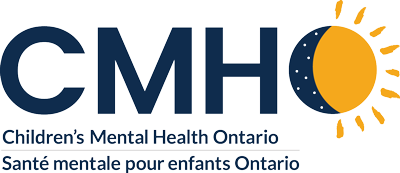Over the past year, the longstanding inequities facing children, youth, and families who are Black, Indigenous and People of Colour (BIPOC) have been further exacerbated by both the COVID-19 pandemic and the increased violence and discrimination against BIPOC communities. There is no denying that racism is a child and youth mental health issue.
CMHO’s commitment to building a more equitable system for all children, youth, and families across Ontario is driven in large part by the lived experiences of youth and families themselves. As we reflect on the statements we made last summer condemning anti-Black and anti-Indigenous racism, as well as the commitments we made to improve equity in the child and youth mental health system, it was critical to us to work with The New Mentality (TNM), and to reach out to BIPOC youth within our network to gain further insight on the impact that the pandemic has had on them and their mental wellbeing. The following statements, written by youth, highlight some of these experiences:
“It’s clear that the COVID-19 pandemic has not impacted all youth equally. The pandemic has highlighted long standing health inequities, while simultaneously exacerbating these inequities. A significant outcome of the pandemic has been the negative impact on youth mental health, especially for racialized youth. Prior to the pandemic, racialized youth faced increased barriers in accessing mental health care, which includes discrimination, experiences of racism, financial and geographical barriers, and a lack of culturally competent care. In conjunction with the COVID-19 measures that enacted to limit the spread of the virus, such as the closures of in-person school and organized activities, racialized youth experienced further disruptions to their lives and mental health. In speaking to the youth in my predominately racialized community and hearing their stories, the detrimental impact of the pandemic on their mental health cannot be understated. As we recover from the pandemic, it’s especially important that we prioritize racialized youth mental health to ensure that these inequities and gaps don’t continue to widen. ”
– Hodan, Youth Advocate
“Navigating this pandemic and lockdown has been very difficult. It has taken a significant toll on the mental health of youth, especially racialized youth. As a Black woman, an additional stressor that I’ve had to deal with during this pandemic is the escalation of racial injustice towards the Black community. On top of dealing with social isolation, fear of COVID-19, lack of employment opportunities, I also felt I had to take on the emotional burden of advocating for the Black community. This sense of obligation to advocate and speak out, mainly came from the fact I felt I could only find the support and understanding I needed online, by interacting with other individuals who have been triggered or traumatized by the events that took place. I believe this is something I have seen constantly. Racialized youth don’t feel comfortable reaching out to services when these events occur, because they don’t believe they will find a professional that can understand the emotional and mental toll it takes. I hope as more organizations become aware of the work that needs to be done, this narrative can change.
– Nneoma, Youth Advocate
“I think that the pandemic has highlighted issues that we always knew were there, but were trying to ignore. A lot of people have had to spend a lot of time alone with ourselves, and this reflection has forced us to acknowledge the reality of our mental health and our situations. It doesn’t just stop at self-reflections, it also has highlighted existing inequities that for too long, were shoved under the rug by the system, relegated as low priority issues. My friends and I have long felt like low priority issues to the mental health system, having to wait in long lines, gather our coins up to afford a bus ride down to a service provider, and come face to face with yet another clinician who didn’t understand us or where we come from. It was hard having to do things on our own, and the pandemic has just pushed that to the nth degree. Now, we are forced to acknowledge that it’s okay to reach out for help, and we are also forced to acknowledge that there isn’t a lot of help available to racialized youth. One of my friends was pushed to the point of hospitalization for their parents to realize that their mental health was out of their control. The shame that follows BIPOC youth is passed down from generations, and we are expected to unearth ourselves from those pits without any support. Due to COVID, wait times are longer than ever, and although many agencies are trying to pick up their slack in terms of a lack of diversity or cultural understanding, I’m not sure it’s fast enough. People like me, my friends, and my peers continue to struggle and fight trying to access a system that isn’t meant for us, and we will face the consequences of everything hiding under the mental health system’s rug until someone decides to bring it to the light and do something about it.”
– Erin, Youth Advocate
In hearing from our youth, this much is clear: over the past year, COVID-19 and multiple acts of violence and terror against BIPOC communities both close to home and abroad have further impacted and exacerbated the inequities that racialized communities experience. We recognize that these issues are deeply rooted in Canada, in Ontario, and within our sector, and that we have a role to play in dismantling the systems that continue to oppress and marginalize children, youth, and families of colour within the child and youth mental health sector.
In the summer of 2020, CMHO released statements condemning anti-Black and anti-Indigenous racism following the murder of George and the death of 11 Indigenous children in Ontario’s child welfare system. We also made a commitment to provide updates on the progress we’ve made related to improving racial equity over time. Since our last statement, we have deepened our racial equity work internally as an association and with our members and partners across the child and youth mental health (CYMH) sector through:
- Conducted consultations
- A partnership with the Ontario Centre of Excellence for Child and Youth Mental Health to survey and interview members about their existing strategies and policies on racial EDI, in order to understand the current state of racial EDI in Ontario’s CYMH sector
- A second partnership with the adult mental health and addiction sector to host a webinar for members on understanding vaccine hesitancy and improving vaccine confidence among BIPOC communities
- Our youth engagement program, The New Mentality has been deeply working on the topic of race and mental health through their annual Disable the Label leadership retreat, the Youth Action Committee’s survey, group consultations and a twitter chat on race, mental health and the pandemic.
- Ongoing prioritization of staff and board engagements focused on anti-racism and the history of systemic oppression and anti-Black racism in Canada.
- Established a committee to address issues related to the advancement racial equity within our sector.
While we have made progress over the past year toward the commitments that we made in 2020, we recognize that we still have a lot of work to do to further health and within our sector and our organization. We know that this work is an ongoing process of learning, unlearning, and amplifying the voices of those in BIPOC communities that have continued to lead efforts to advance health equity for centuries, and we are committed to ensuring that this work remains an organizational and sectoral priority.
It is undeniable that existing systems of power and privilege must be dismantled in order to create a safe space for BIPOC children, youth, and families. We will continue to prioritize this work within our organization and our sector and will provide another formal update on our work towards these commitments in 2022 to ensure accountability and transparency in our endeavors.
If you or a young person you know right now is struggling, please reach out for help. Child and youth mental health centres across the province are open and providing counselling and therapy virtually, on the phone, and in-person where needed. Find support near you at www.cmho.org/findhelp.


0 Comments